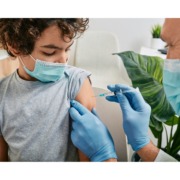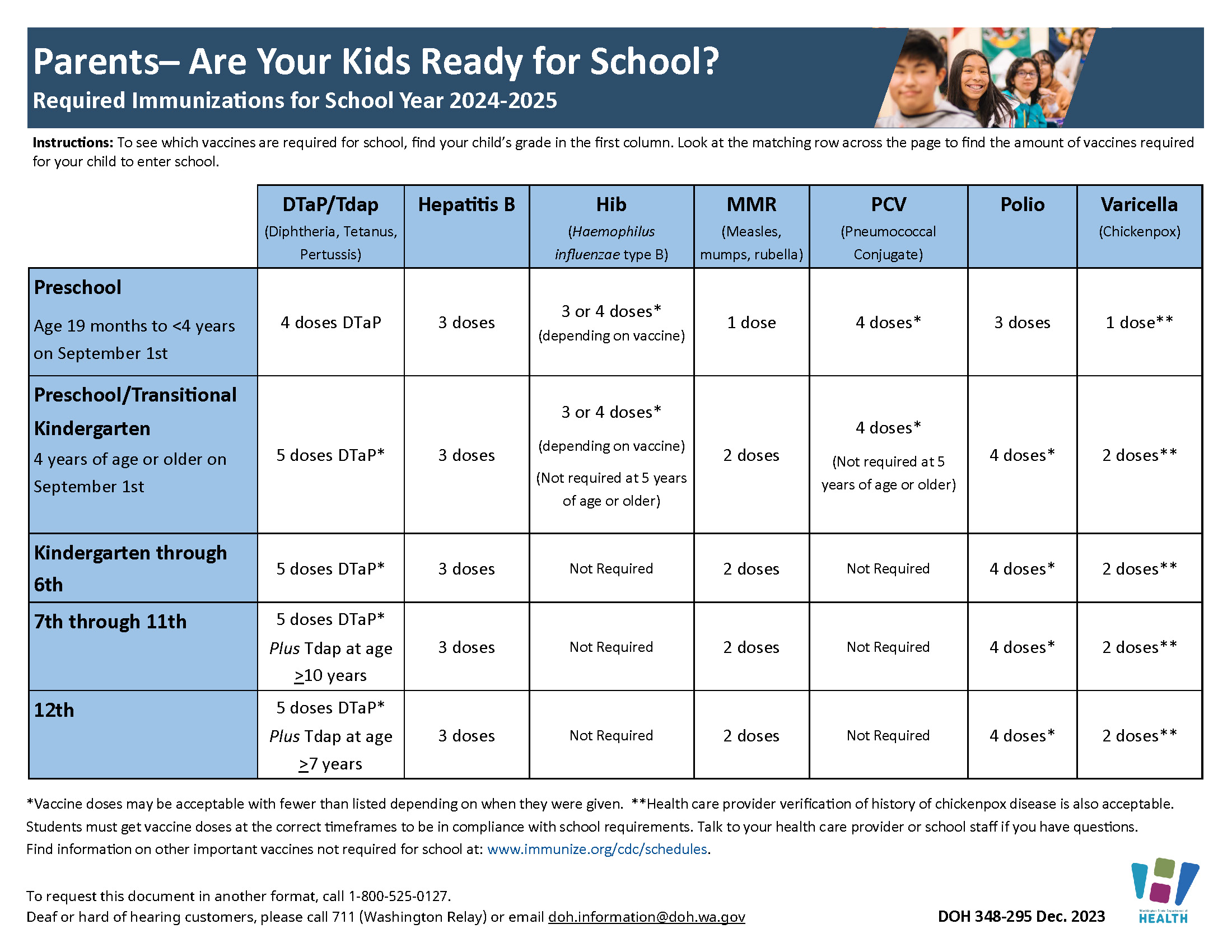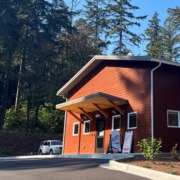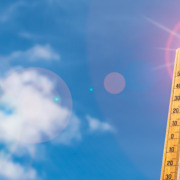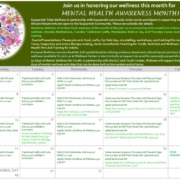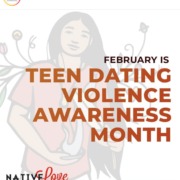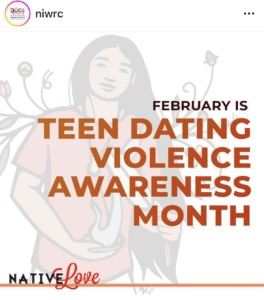Kitsap Public Health Advisory: Update on measles activity
Kitsap Public Health District released a Health Advisory on Feb 29 with an update on measles activity. Per Healing House Primary Care’s Dr. Kristine Ewing, here are the four main takeaways:
- Measles is a vaccine preventable disease that is on the rise due to decreases in vaccination.
- Measles is characterized by a rash following the onset of fever, cough, runny nose and pink eye.
- If you have these symptoms, wear a mask, isolate from others, and call your doctor for guidance on how to be evaluated.
- MMR vaccine is 93% effective against measles after one dose, and 97% effective after two doses.
To read the full advisory, visit the Kitsap Public Health District website.
Healing House Primary Care Expands Eligibility
Suquamish Tribe Healing House Primary Care Clinic is now accepting new patients from the following groups:
- Suquamish Tribal Members and their families
- American Indian/Alaska Native tribal members/descendants enrolled in other federally recognized tribes
- Suquamish Tribal Government staff and their families
- Port Madison Enterprises employees and their families
For these patients Primary Care accepts any insurance. Primary Care is also now accepting anyone with Medicaid.
Primary Care is currently at capacity for all other patients with private insurance and Medicare.
All patients must provide proof of insurance. For American Indians/Alaska Natives without insurance, please call the clinic for Medicaid enrollment assistance.
For more information regarding eligibility and new patient registration, please contact the Healing House reception desk at (360) 394-1350.
Suquamish Tribe 2023 COVID-19 Testing
As COVID cases continue tick up throughout the region, Suquamish Tribe is taking steps to help reduce the spread.
Beginning Monday, Aug. 21, Community Health will resume drive-up PCR testing for tribal member households, government staff, and PME employees at the Healing House parking lot from 8:30-10am. The testing will continue until Friday, Sept. 1.
Free home tests are also available at Community Health while supplies last.
Tribal government employees who test positive:
- Must stay home for five full days, beginning the day after symptoms first start.
- Once symptom-free, you can come back to work, but must wear a mask for ten days from symptom onset.
- Even if you do not test positive, if you are experiencing any COVID-related symptoms – even if it just feels like a minor cold – employees must stay home.
- If you are a close contact, remember to wear a mask for 10 days and test on the 5th day.
- If anyone in your household tests positive, and you are symptom free, you may still come to work, but must wear a mask for 10 days.
For the most part COVID symptoms remain the same — sore throat, congestion, fatigue, fever, and cough are still the most common. Some may also experience gastrointestinal symptoms, and there are reports that one COVID strain can cause pink eye.
Rapid tests are still accurate for all of the variants that are circulating. If you have symptoms but get a negative result, wait two days and test again.
If you test positive for COVID and you’re over age 50 or have chronic medical issues including asthma, ask your doctor about getting a Paxlovid prescription as soon as possible because it can reduce the risk of hospitalization and long COVID if you start taking it within the first five days of an infection.
Health Clinic Closed July 3rd & 4th
Suquamish Tribe Healing House will be closed July 3-4
For Emergencies, Call 9-1-1 or go to the nearest urgent care clinic or hospital ER
May is Mental Health Awareness Month
The Suquamish Tribe’s Wellness Center has a slew of events planned for Mental Health Awareness Month through May. All activities are open to the Suquamish Community.
Here’s a round-up of what’s coming up:
Weekday Wellness Activities: Each weekday of the month of May join us in connecting with ourselves and culture to support our wellness. Monday Meditations, Tuesday Traditional Crafts, Wednesday Walk or Jog, and Thursday Canoe Journey Giveaway making.
Events/Presentations: Please join us in food, crafts, fun field day, storytelling, workshops, and training this month. Frybread Tacos, Happy box and aroma therapy making, Seven Grandfather Teaching for Youth, Nutrition and Wellness Talk, and Mental Health First Aid Training for Adults.
Personal Wellness Journey Booklet: Self-guided booklet utilizing evidence-based and cultural-based practices to support holistic wellness (available for pick up at Wellness Center or electronically at request via email to oponce@suquamish.nsn.us)
31 Days of Mental Wellness for Youth: In partnership with the ELC and Family & Friends Center, Wellness will support both agencies in a 31 days of mental wellness activities that can be done both at the centers and at home.
Check out the May Wellness Calendar for more details.
Empowering our teens to create healthy relationships
Teen Dating Violence Awareness Month is an opportunity to create awareness about Teen Dating Violence, uplift youth voices, and healthy relationship skill building, and connect young people with resources to help cultivate safety in their relationships. Many Native peoples have the teaching that we are all related, our clans and kinship systems show us how we are connected to each other. Taking care of ourselves and each other is how we practice being good relatives. It starts with cultivating healthy relationships when we are young.
Teen dating violence is an issue in Indian Country that we should understand and actively work to end. It often occurs between the ages of 13-19 but can start as young as 11 years old. 1 in 12 US high school students experience physical dating violence and 1 in 12 experience sexual dating violence. These numbers are very high though this issue is often hidden from others. Many young Native people are suffering in silence. Nobody deserves to be abused. We should be talking about the reality of Teen Dating Violence even if many do not see it. Relationships should be based on respect and care and not power and control.
Native teens deserve to be taught healthy coping and relationship skills like consent and boundaries and prevent Teen Dating Violence. We need support services for survivors of teen dating violence so young people can get the help they need. TDVAM is an opportunity to empower youth to help their peers know where to go or who to talk to if one of their friends confides in them about experiencing dating abuse.
NativeLove and the National Indigenous Women’s Resource Center (NIWRC) work to raise awareness and create educational tools about Teen Dating Violence to support advocates working in Indian Country. Our goal is to empower teens to demand safety in their relationships and uplift their voices. Help support Native youth by raising awareness about Teen Dating Violence and promoting healthy relationships.
Follow, Like, and Share @NativeLoveIs on Instagram, TikTok, and Facebook.
Teen Dating Violence, Defined
Teen Dating Violence is a type of relationship violence that occurs between young people. It is defined as when a person uses a pattern of abusive behavior toward their partner to gain power and control over them. Teen Dating violence can include one or more types of abuse, and can look like this:
- Physical abuse—pushes, shakes, slaps, kicks, or spits on you. Holds you down. Throws or breaks your personal belongings (ex. books, cell phone, etc.)
- Emotional abuse—insults you, calls you hurtful names, or embarrasses you in public. Constantly accuses you of cheating. Threatens to hurt you or expose secrets about you.
- Sexual abuse—unwanted kissing or touching, pressures you to have sex or makes you feel guilty for not wanting to have sex or demands that you send them sexually explicit photos or videos.
- Digital abuse—constantly calls, texts, or DMs you to find out where you are or who you’re with, tells you who you can be friends with on social media, or sends mean messages on social media either directly from them or anonymously, tracking you, or sending sexual messages without consent.
- Cultural/Spiritual abuse—makes fun of your religious beliefs or cultural responsibilities to make you feel shame or embarrassment.
- Financial abuse—steals money from you. Controls how you spend your money.
Some signs of dating violence can include when a partner:
- Acts extremely jealous or possessive of you, follows you home or to school, or shows up wherever you are unannounced.
- Is annoyed or upset when you spend time on the phone with other people.
- Interferes or stops you from doing things alone or getting support from others.
- Tells you who you can or cannot be friends with, starts rumors, or threatens to start rumors about you.
- Excessively texts you or sends non-stop DMs.
- Checks your phone for who texts or calls you.
- Tags you in hurtful social media memes, posts, or pictures.
- Criticizes your dreams, goals, family, or friends.
- Tells you what to wear or how to dress.
- Explodes in anger toward you or acts aggressively when they’re upset.
- Kisses, grabs, or touches your body without your permission.
- Forces you to take sexually explicit selfies or videos.
- Threatens to hurt themselves or commit suicide if you don’t do what they want.
If you know a young relative that is being abused:
- Call or text StrongHearts Native Helpline at 1-844-762-8483 or chat at strongheartshelpline.org.
- Create a safe space and tell them you’re concerned about their safety.
- Be a good relative and listen to their story when they’re ready to share.
- Let them know the abuse is not their fault and they do not deserve it.
- Ask how you can help them.
- Offer support and encourage your friend’s strength and courage.
- Share resources available online or locally from your community.
- Learn about dating violence and the signs of relationship abuse.
- Avoid confronting the abusive person hurting your loved one. It can escalate the situation and put your young relative in danger.
If your friend or relative is being abusive, find ways to let them know their behavior is not acceptable. Ignoring their bad behavior condones and supports it.
Helpful Resources and Activities:
- Invite youth and teens to do the #NativeLoveIs TDVAM Instagram/Tiktok Challenge during the month of February by making a zine about what Native Love means to them for a chance to win a prize pack from NativeLove and NIWRC!
- Register for the NIWRC webinar, ‘Ending Teen Dating Violence and Cultivating Healthy Relationships,’ on February 23 at 1-2:30 p.m. MDT.
- Download or order Youth Magazine: Relationships – Healthy Unhealthy, When There is Danger.
- Explore NIWRC’S Special Collection for Native American Teens, developed to provide awareness resources and promote important discussions about teen dating violence.
- If you need to talk, call StrongHearts Native Helpline at 1-844-762-8483 or chat at strongheartshelpline.org.
- Read blogs, Recognizing Healthy Relationships and Dating Violence and How to Support a Loved One in an Abusive Relationship, by StrongHearts Native Helpline.
- Watch NativeLoveIs videos focused on raising awareness and empowering Native youth to speak out about traditional cultural values that honor and respect Native women.
- Explore the NativeLove Online Toolkit for Youth and Toolkit for Educators Coaches and Mentors for resources to raise awareness about teen dating violence.
- View Signs of Teen Dating Violence and Resources from TeenDVMonth.org.
- Explore the 2023 TDVAM Action Guide by Love is Respect.


